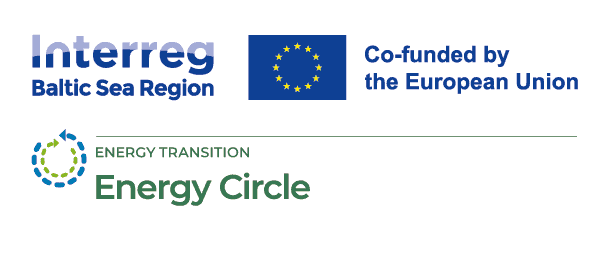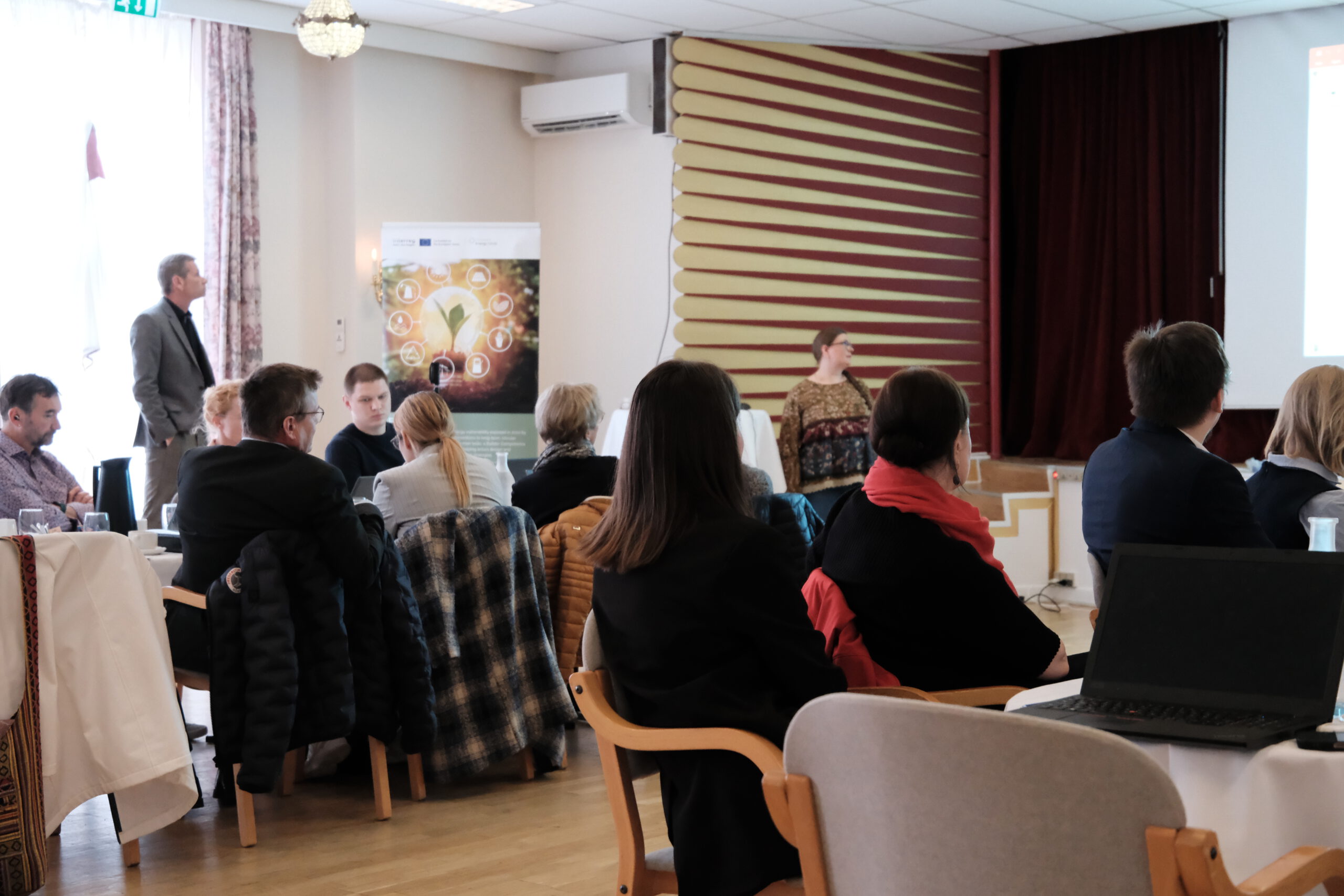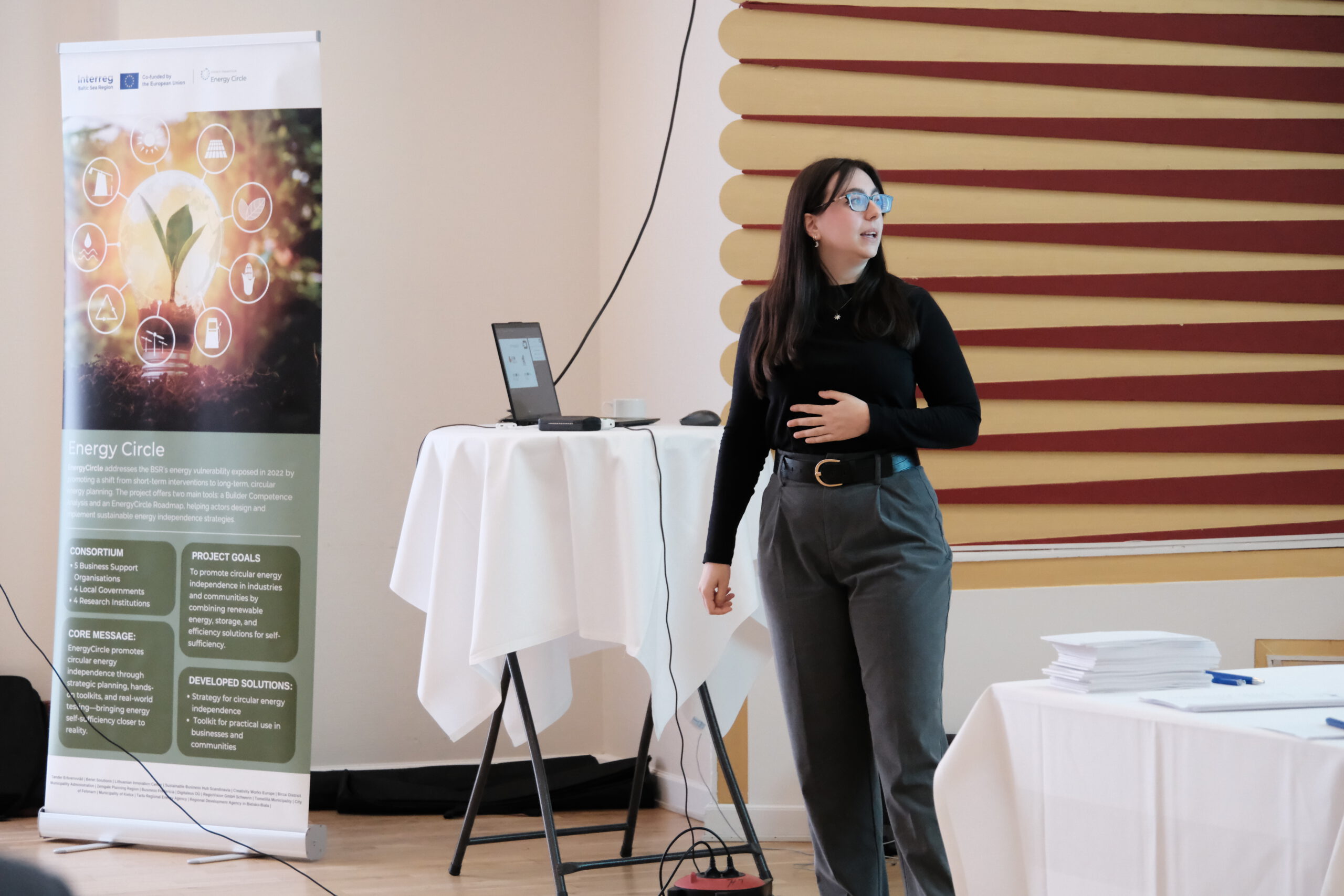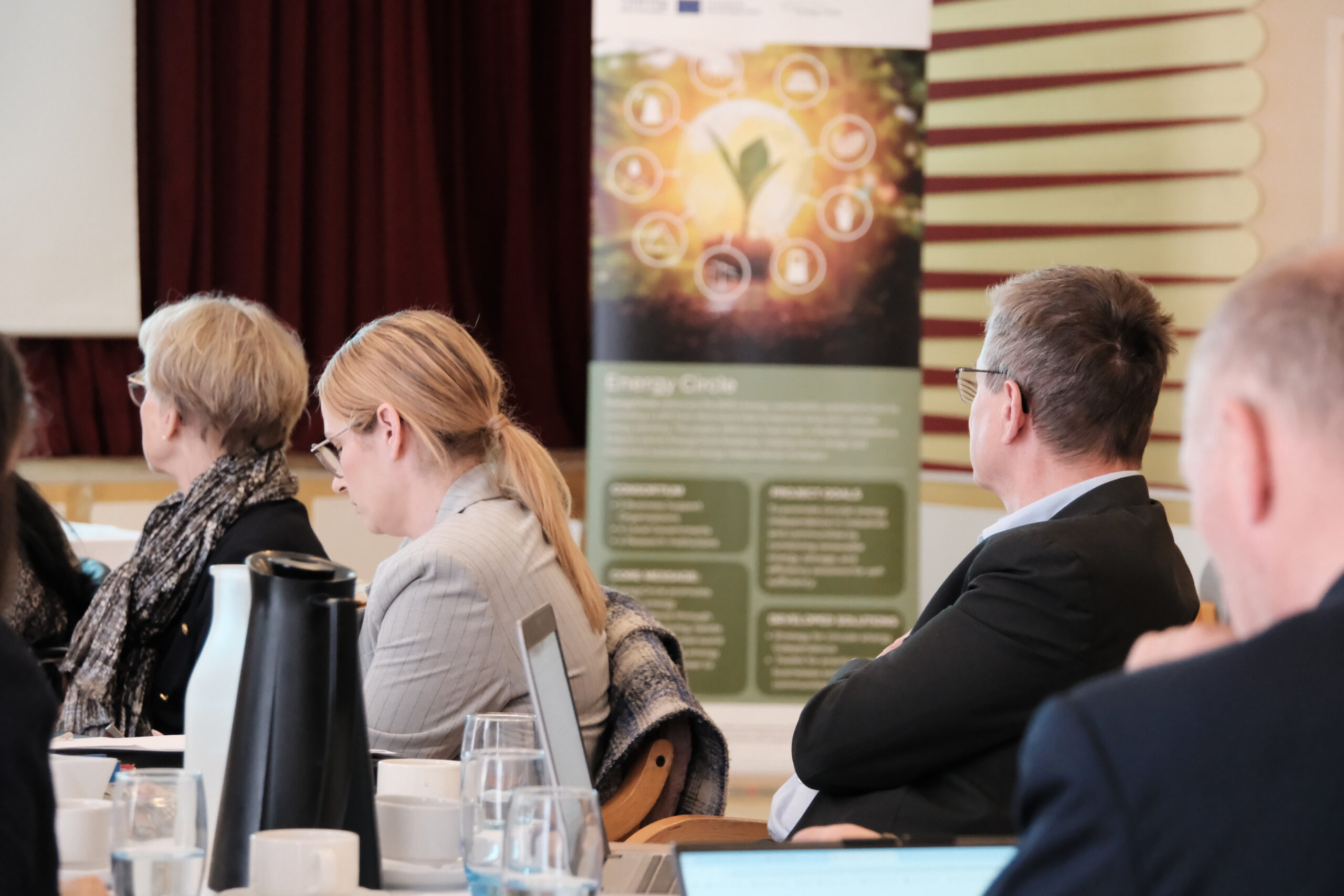
Energy Circle kick-off meeting in Tønder, Denmark from 22 to 24th April 2025
05 September 2025
The main objective of Energy Circle project is to offer the target groups (Business support organizations and Local public authorities) a set of solutions to support the transition to circular energy independence, based on long-term plans. There are two proposed solutions within the project: the first one is Methodology for Builder Competence Analysis is to assess the capacity to be “builders” of the transition to energy independency. The second one is Methodology for Energy Circle Roadmap with purpose to facilitate the target group’s process of designing long-term plans for energy independence.
The purpose of the kick off meeting was partners to get to know each other better, to specify the activities, goals, deliverables and networks planned within the project.
Project includes fifteen partners (and ten associated) from eight Baltic Sea Region countries. During the meeting, all partners confirmed their willingness to actively participate in the project activities and presented their organizations and services. Also, at the meeting the project work plan, financial and reporting issues were specified. Additionally, the validation workshops calendar and joint platforms for communication and documents sharing were agreed. At the end of the meeting, participants also had the opportunity to get an overview of Tønder.
The next offline meeting of project partners will take place in Germany, 28-29 October 2025.








